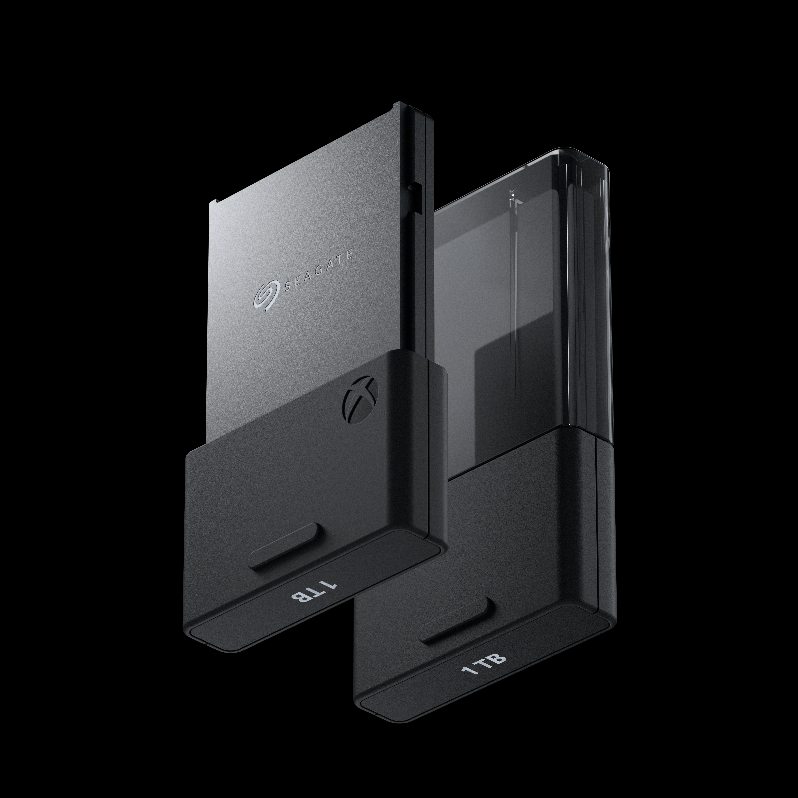Xbox Series X SSD Loads Gears of War 5 4 Times Faster, Developer Says
Game devs talk about programming for the next-gen Xbox.
Gears of War 5 runs 4 times faster on the Xbox Series X with no changes to its code, one of the game’s technical directors told Windows Central. In a series of interviews with various game developers, the publication dived into the console's move from HDD to SDD.
“With Xbox Series X, out of the gate, we reduced our load-times by more than 4x without any code changes,” Gears of War 5 technical director Mike Rayner said “With the new DirectStorage APIs and new hardware decompression, we can further improve I/O performance and reduce CPU overhead, both of which are essential to achieve fast loading.”
This backs up assertions made by Xbox Program Manager Jason Ronald, who explained the enhanced load times to Windows Central.
“With Xbox One X, we reached the upper limits of performance in traditional rotational drives...we knew we needed to invest in SSD-level I/O speeds and innovation," he said.
According to the exec, this was also the basis for the Xbox Velocity Architecture. The architecture uses a custom-made NVMe SSD with a custom and dedicated hardware decompression block and the team's new DirectStorage API. The latter brings low-level access to the NVMe controller. Xbox Velocity Architecture also taps the company's Sampler Feedback Streaming, which serves as a multiplier of the Xbox Series X's physical RAM.
That’s a lot of jargon, but essentially,it means that not only is the Xbox Series X built from more powerful hardware, but it’s also got a bunch of custom tools to make using that hardware easier. And according to devs, it seems to be more than just marketing hype.

“The most exciting thing for me is the addition of an SSD and the custom hardware surrounding it to help get data into memory faster,” The Long Dark’s Joel Baker told Windows Central. “This is not only going to allow for better streaming and load times but also make it easier to work with larger data sets that don’t easily fit into memory."
Rebellion’s Kevin Floyer-Lea seemed to agree, telling the publication that faster load times lets them model more realistic environments and audio without worrying about slowing down the player’s experience.
Get Tom's Hardware's best news and in-depth reviews, straight to your inbox.
“Hard drives have always been a hard constraint that developers have to deal with," Alexandre Sabourin, a team lead at Deus Ex Human Revolution Director’s Cut developer Snowed in Studios added. "SSDs provide some interesting benefits, such as removing the necessity for seek times, which might provide flexibility in how you would pack data on fisk."
Sabourin also noted that with the faster read times of SSDs, loading screen time and the ability to "stream large worlds" also improves.
The Xbox Series X is also set to support 4K gaming and ray tracing, which Ori and the Will of the Wisps developer Gennadiy Karol told Windows Central “is the next big thing in gaming.”
Alternatively, Xbox Series X users can continue to play at 1080p but at a premium 120 Hz refresh rate.
All this said, with so many games being built around the console's new SSD, adding storage space to your console could be a concern, as the only way to add additional SSD space to the Xbox Series X is a proprietary port that uses a proprietary expansion drive.
Impressive load times, though.
Michelle Ehrhardt is an editor at Tom's Hardware. She's been following tech since her family got a Gateway running Windows 95, and is now on her third custom-built system. Her work has been published in publications like Paste, The Atlantic, and Kill Screen, just to name a few. She also holds a master's degree in game design from NYU.
-
watzupken We should know more as we get closer to the launch date. I actually don't think its something unexpected. There are reviews out there that shows a tangible improvement in load times between a NVME SSD and a mechanical drive. 4x is probably the best case scenario.Reply -
closs.sebastien my nvme is up to 3500 Mb/s.. mechanical hard-drive is between 100 and 200 Mb.. so it's definitely not a factor 4x.. or they take a bad nvme which works at 600 mb/s... say, a standard ssd.Reply -
bit_user Reply
Really? I installed a 250 GB SATA SSD in my PS3 Super Slim, back around the same time I built my first SSD-only PC.closs.sebastien said:console-people will discover ssd-world... just a bit late... -
gggplaya Replycloss.sebastien said:my nvme is up to 3500 Mb/s.. mechanical hard-drive is between 100 and 200 Mb.. so it's definitely not a factor 4x.. or they take a bad nvme which works at 600 mb/s... say, a standard ssd.
You need to use a Capital B which denotes a BYTE, a lowercase b denotes a BIT.
1 Byte is equal to 8 bits, so when you say 3500Mb/s you're actually saying 437MB/s.
bit_user said:Really? I installed a 250 GB SATA SSD in my PS3 Super Slim, back around the same time I built my first SSD-only PC.
You're late to the party, most people I know were building the main Windows drive with a 64GB or 128GB SSD back in the day during mainstream adoption of SSD. They loaded maybe their favorite game on SSD and all other games on magnetic storage. -
bit_user Reply
LOL, wut? I am late to the party?gggplaya said:You're late to the party, most people I know were building the main Windows drive with a 64GB or 128GB SSD back in the day during mainstream adoption of SSD. They loaded maybe their favorite game on SSD and all other games on magnetic storage.
The post I quoted implied console people haven't yet discovered SSDs. I put one in my PS3 around 2011 or 2012. That was my only point.
Whatever you want to say about PC gaming on SSDs has nothing to do with me. -
LordVile Reply
That’s if it’s loading the game at 3500mb/s. Remember the 3500 figure is sequential reads and a game is made of multiple sequential reads at random Means the speed is way lower than the 3500.closs.sebastien said:my nvme is up to 3500 Mb/s.. mechanical hard-drive is between 100 and 200 Mb.. so it's definitely not a factor 4x.. or they take a bad nvme which works at 600 mb/s... say, a standard ssd. -
gggplaya Replybit_user said:LOL, wut? I am late to the party?
The post I quoted implied console people haven't yet discovered SSDs. I put one in my PS3 around 2011 or 2012. That was my only point.
Whatever you want to say about PC gaming on SSDs has nothing to do with me.
You Said " back around the same time I built my first SSD-only PC. "
You were late to the party.
